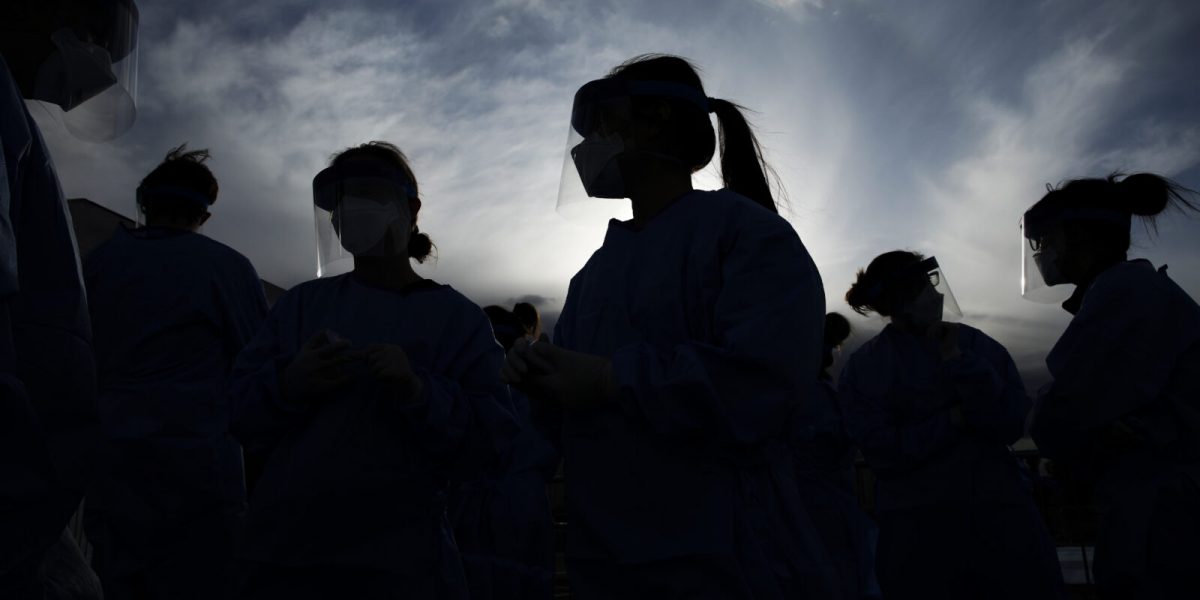Queen is an essential worker without status, who survived COVID-19 during the first wave and continues to work in long-term care. She spoke with Spring Magazine about her experience through the second wave, and how the ongoing denial of paid sick days impacts LTC work, COVID testing and vaccination.
The first wave made it clear that precarious work was driving the pandemic, including poverty level wages that force LTC workers into multiple jobs. The government responded by restricting workplaces, but not raising the minimum wage or expanding paid sick days. What’s the ongoing impact of the ongoing pandemic and precarious work on LTC workers and residents?
At this stage a LTC worker cannot ‘afford’ to miss a work day. There have been so many job loss and closures. Most individuals would have a second job to alleviate cost of living while working on a meager salary with the despicable minimum wage set for us. Last year ministry directives stated that as a LTC worker you could only work in one home. They wanted it stated on paper and signed to the LTC home as a record of compliance. So the ripple effect of this means that workers can’t afford a rest without paid sick days, they are being burnt out.
Also having to cope with residents who are stuck indoors for a very long period being very irritable, missing companionship, fresh air and nature deprivation, nothing to look forward too. Absolute despair on all ends.
The Ford government’s only public health strategy seems to be to expand COVID testing and security outside of LTC, rather than supporting workers inside LTC. How has this impacted your job?
There is a recent development where private caregivers ‘need’ to take three covid tests weekly as of February 2021. As of last November 2020 any private caregiver that tested positive in the first wave had to be subjected to weekly testing. Refusal means you won’t be allowed to work and cannot enter the building. Why are survivors of the first wave (like myself) being taken advantage of just to keep a job and food on the table? It feels like being punished, damned if we do and damned if we don’t.
What’s the impact on caregiving on having to get repetitive tests without improvements in working conditions and access to paid sick days?
Testing LTC workers three times a week does not improve working conditions. What it does is add more stress to the work environment and takes away precious time that could be spent mentally/physically recuperating for the next shift of work. No one pays for the inconvenience of extra time spent getting to and from testing especially, if it’s not on a work day.
The government seems to think that the COVID vaccine eliminates the need for paid sick days. But people need time off work to get vaccinated and to recover from its normal side effects. What’s the impact of vaccination without paid sick days?
The vaccine came about late December and quite a lot of workers and most residents got it. A big percentage had pain, swelling, fever, headaches, vomiting, stiffness, cold sweats just to name a few. The workers came to work with all these adverse effects because of no paid sick days. How torturous for them.
The pandemic has highlighted how much society depends on essential workers, but that many of these same workers are denied status, healthcare and income support. What’s it been like to provide essential work through two waves of COVID-19?
At the end of this it still comes down to not just LTC workers but ‘essential care’ workers carrying the weight of the decisions made by the government. Workers who are non status, non-insured, ineligible for CERB or any other grant during covid, pulling the weight of the machinery that is our ‘opportunity for all’ system in this lovely Canada. Makes me sick to my stomach, but I can’t afford to be!
Take action
- Support the $15 and Fairness campaign for paid sick days for all
- Support the Migrant Rights Network campaign Vaccines for All: Equal Access to Health for All
Did you like this article? Help us produce more like it by donating $1, $2, or $5. Donate

